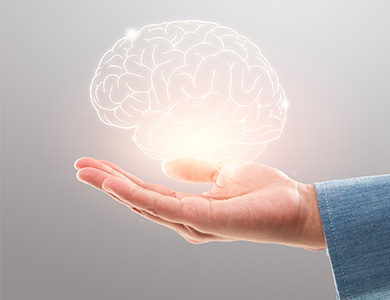
Transcranial Magnetic Stimulation (TMS) has become an increasingly popular treatment for individuals struggling with depression and other mental health conditions. However, like many medical innovations, it’s surrounded by misinformation and misconceptions. At Thunder Pain and Wellness, we’re here to help separate the myths from the facts about Transcranial Magnetic Stimulation (TMS) so you can make informed decisions about your mental health care.
Myth 1: TMS Is the Same as Electroconvulsive Therapy (ECT)
Fact: Although both treatments target brain activity to alleviate depression, they’re very different. ECT uses electrical currents under anesthesia to induce controlled seizures, while TMS uses magnetic fields to gently stimulate specific regions of the brain - without anesthesia, memory loss, or downtime. Most patients can drive themselves to and from sessions.
Myth 2: TMS Is Painful or Invasive
Fact: TMS is a non-invasive procedure. There are no needles, surgery, or sedation involved. During treatment, patients may feel a light tapping sensation on the scalp, but it’s generally well tolerated. Many people even read or listen to music during their sessions.
Myth 3: TMS Only Works for Severe Depression
Fact: While TMS is FDA-approved for treatment-resistant depression, it’s also being studied and used for other conditions, including anxiety, PTSD, and chronic pain. Patients who haven’t found relief with medication or therapy often experience significant improvement with TMS.
Myth 4: TMS Results Are Temporary
Fact: Many patients experience long-lasting benefits from TMS therapy. The brain changes achieved through magnetic stimulation can lead to sustained improvements in mood and function, especially when combined with lifestyle changes and ongoing support.
Myth 5: TMS Isn’t Safe
Fact: TMS is a safe, FDA-cleared treatment with minimal side effects. Unlike medications, TMS does not cause systemic side effects such as weight gain, drowsiness, or sexual dysfunction. The most common side effect is mild scalp discomfort during the first few sessions, which typically fades over time.
Myth 6: TMS Is Only for People Who’ve Tried Everything Else
Fact: While it’s often recommended for individuals who haven’t responded to antidepressants, TMS can be an effective option earlier in the treatment process. It’s a gentle and non-drug alternative that supports natural brain function and can complement other therapies.
Your Trusted TMS Specialists in Reno, NV
Transcranial Magnetic Stimulation is a groundbreaking, evidence-based treatment that offers new hope to individuals struggling with depression and other conditions. Our experienced team is here to help you find relief and restore balance through safe, non-invasive treatments like TMS.
Contact Thunder Pain and Wellness to schedule a consultation and determine if TMS is right for you. Visit our office in Reno, Nevada, or call (775) 254-7400 to book an appointment today.




